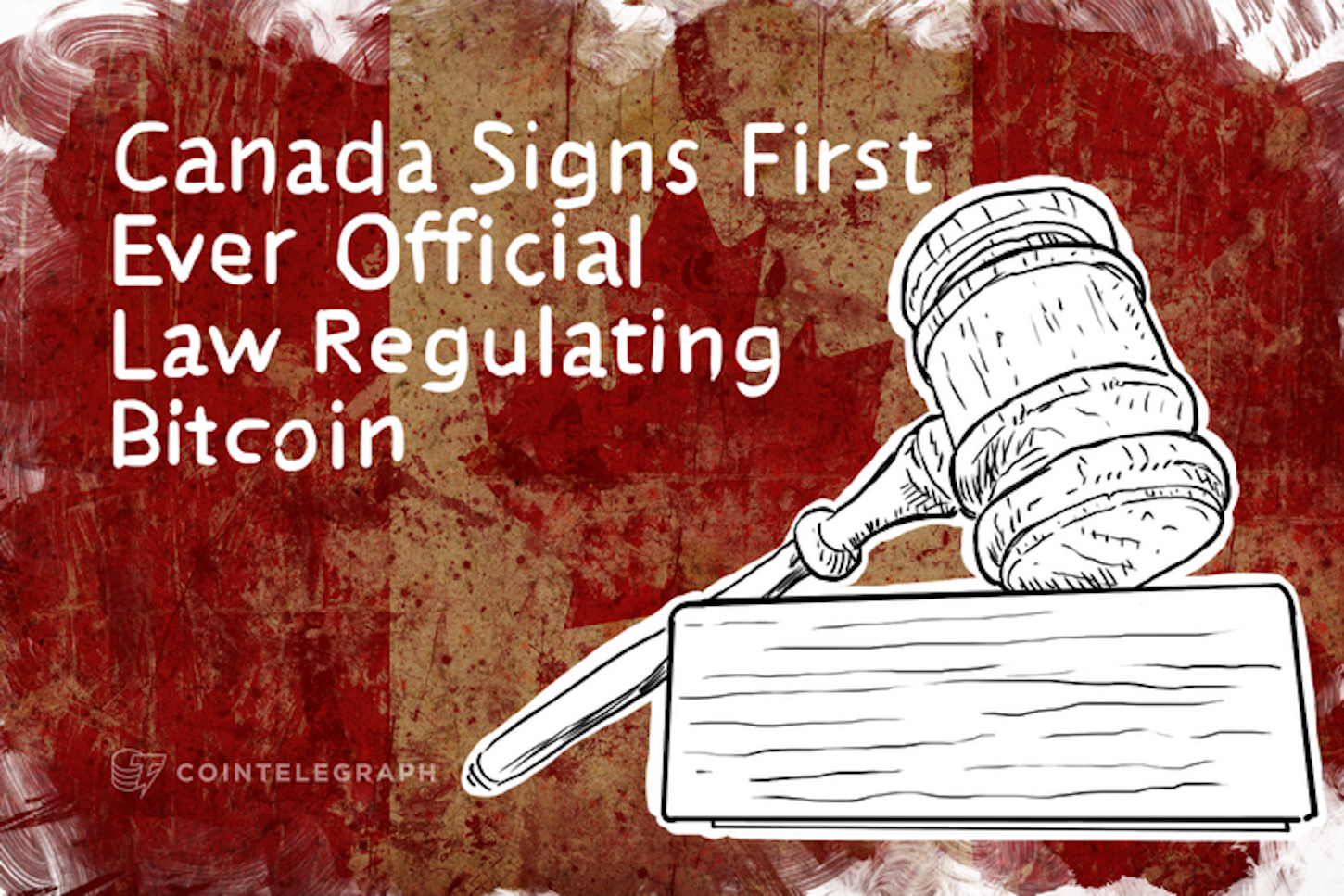Its signing was quiet, notes Christine Duhaime, B.A., J.D., Financial Crime and Certified Anti-Money Laundering Specialist of Duhaime Law. Last Thursday, royal assent was given by Canada’s Governor General to the discretely-named Bill C-31, An Act to Implement Certain Provisions of the Budget Tabled in Parliament on February 11, 2014 and Other Measures (“Bill C-31“).

Canada has been toying with the idea of regulation for quite some time, as Cointelegraph reported earlier this month, with the publication of a report entitled “How Should Bitcoin Be Regulated?” by the Montreal Economic Institute in May. Now, however, it would seem theory has definitively been put into practice.
The implications? Duhaime highlights what should be taken away from the pioneering event.
“The five most important aspects of Bill C-31 as they relate to Bitcoin are as follows:
- Regulates Bitcoin as MSB – Bitcoin dealing, more specifically referred to as “dealing in virtual currencies” in Bill C-31, will be subject to the record keeping, verification procedures, suspicious transaction reporting and registration requirements under the PCMLTFA as a money services business.
- Does not define “dealing in virtual currencies” - The phrase “dealing in virtual currencies” was left undefined and it is not known what the defined term will encompass in terms of business activities once defined by regulation.
- Registration with FINTRAC - Bitcoin dealers will be required to register with FINTRAC and if successfully registered, to implement a complete anti-money laundering compliance regime.
- Captures foreign Bitcoin companies targeting Canada – Bill C-31 is more sweeping than other Canadian laws because it extends to: (a) companies that have a place of business in Canada; and (b) companies that have a place of business outside Canada but who direct services at persons or entities in Canada. Coinbase, for example, will have to register with FINTRAC to continue to provide Bitcoin services in Canada. Having a place of business means physically located in Canada, or having an R&R in Canada. Bitcoin businesses in Canada, however, that provide services to persons or entities outside of Canada are exempt from Bill C-31 for those external services.
- Prohibits banks from opening accounts for Bitcoin entities if unregistered - Under Bill C-31, banks will be prohibited from opening and maintaining correspondent banking relationships with Bitcoin dealers that are not registered with FINTRAC. This is an extremely important aspect of Bill C-31 and Bitcoin businesses should ensure they understand what a correspondent banking relationship is and how it can affect the provisions of banking services to them internationally.”
Aside from instigating legislation for Canadian enterprises, it is notable that the bill obliges foreign entities to register with The Financial Transactions and Reports Analysis Centre of Canada (FINTRAC) if they directly serve resident Canadian entities or individuals and, by extension, that it denies banking facilities to those who remain unregistered.
How the international Bitocin community reacts and comes to terms with these requirements remains to be seen. If Canada should become the first guinea pig in an attempt to regulate Bitcoin use, however, it is a process unlikely to continue quietly for long.
Cointelegraph will update readers with additional information as it is available.


